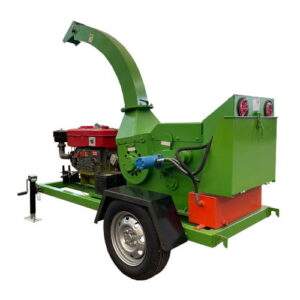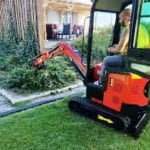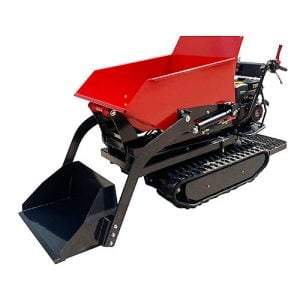Why a Diesel Wood Chipper is Ideal for Heavy-Duty Wood Chipping
Introduction
In the realm of wood chipping and processing, the choice of the right equipment can make all the difference in efficiency, productivity, and overall performance. Among the various options available, the diesel wood chipper has emerged as a standout solution for heavy-duty applications. This blog post will delve into the reasons why a diesel wood chipper is the ideal choice for tackling even the most demanding wood chipping tasks.
Advantages of a Diesel Wood Chipper
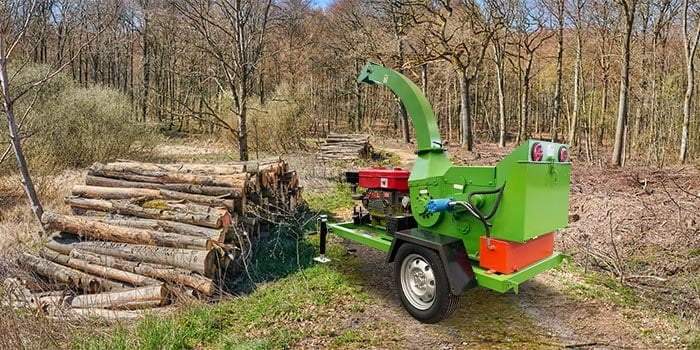
Unparalleled Power and Torque
One of the primary advantages of a diesel wood chipper is its exceptional power and torque output. Diesel engines are known for their ability to generate massive amounts of torque, which is essential for effectively processing large, dense, and tough wooden materials. This power translates into the ability to handle even the most challenging chipping jobs with ease, ensuring that the work is completed efficiently and without strain on the equipment.
Durability and Longevity
Diesel engines are renowned for their robust construction and long-lasting performance. Unlike their gasoline counterparts, diesel wood chippers are designed to withstand the rigors of heavy-duty use, with components engineered to resist wear and tear over extended periods of operation. This durability translates into a longer lifespan for the equipment, making it a more cost-effective investment in the long run.
Fuel Efficiency and Cost-Savings
Diesel engines are inherently more fuel-efficient than their gasoline-powered counterparts, which can result in significant cost savings over the lifetime of the equipment. This efficiency not only reduces the overall operating costs but also contributes to a more sustainable and environmentally-friendly wood chipping operation.
Reduced Maintenance and Downtime
Diesel wood chippers typically require less frequent maintenance compared to gasoline-powered models. The robust design and durable components of diesel engines mean that the equipment requires less servicing, resulting in fewer interruptions to the workflow and more productive hours on the job site.
Versatility and Adaptability
Diesel wood chippers can be configured to handle a wide range of materials, from soft woods to dense hardwoods. This versatility allows users to tackle a diverse range of chipping tasks, making the equipment a valuable asset for landscapers, tree care professionals, and other industries that rely on efficient wood processing.
The Ideal Use Cases for a Diesel Wood Chipper
Landscaping and Tree Care
One of the primary applications for a diesel wood chipper is in the landscaping and tree care industry. These professionals often face the challenge of processing large volumes of woody materials, such as fallen trees, branches, and stumps. A diesel wood chipper’s powerful performance and durability make it the perfect tool for tackling these demanding tasks, ensuring a seamless and efficient workflow.
Land Clearing and Site Preparation
In the realm of land clearing and site preparation, a diesel wood chipper is an invaluable asset. These heavy-duty machines can quickly and effectively process the large amounts of woody debris generated during land clearing operations, making the site ready for further development or construction.
Biomass and Renewable Energy Production
The increasing demand for renewable energy sources has led to a growing interest in the use of biomass as a fuel source. Diesel wood chippers play a crucial role in this industry, as they can efficiently process and transform woody materials into a feedstock suitable for biomass energy production.
Municipal and Commercial Waste Management
Local governments and commercial waste management companies often face the challenge of managing large volumes of woody waste, such as fallen trees and pruned branches. A diesel wood chipper can be an essential tool in this context, helping to reduce the volume of this waste and facilitate its disposal or repurposing.
Comparison of Diesel and Gasoline Wood Chippers
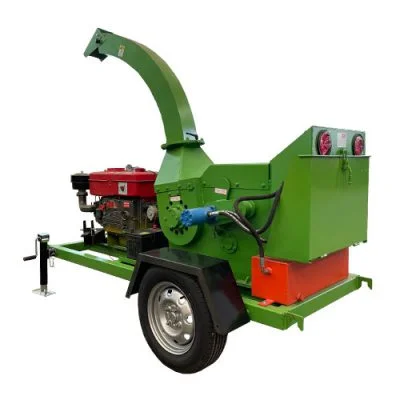
To better understand the advantages of a diesel wood chipper, let’s take a closer look at how it compares to its gasoline-powered counterpart:
| Feature | Diesel Wood Chipper | Gasoline Wood Chipper |
|---|---|---|
| Power Output | Higher horsepower and torque | Lower horsepower and torque |
| Fuel Efficiency | Significantly more fuel-efficient | Less fuel-efficient |
| Durability | Robust construction, longer lifespan | Less durable, shorter lifespan |
| Maintenance | Less frequent maintenance required | More frequent maintenance required |
| Noise Level | Quieter operation | Louder operation |
| Emissions | Lower emissions, more environmentally friendly | Higher emissions, less environmentally friendly |
| Cost of Operation | Lower operating costs | Higher operating costs |
As the table illustrates, the diesel wood chipper outperforms the gasoline-powered model in several key areas, making it the more attractive choice for heavy-duty wood chipping applications.
Conclusion
In conclusion, the diesel wood chipper stands out as the ideal choice for those seeking a powerful, durable, and cost-effective solution for their heavy-duty wood chipping needs. Its unparalleled power, fuel efficiency, and long-lasting performance make it a valuable asset for a wide range of industries, from landscaping and tree care to biomass energy production and municipal waste management. By investing in a diesel wood chipper, users can enjoy increased productivity, reduced operating costs, and a more sustainable approach to wood processing.
FAQ
What size logs can a diesel wood chipper handle?
Diesel wood chippers vary in chipping capacity, but they can typically handle logs ranging from XX inches in diameter, depending on the model and manufacturer specifications.
Are diesel wood chippers more expensive to operate than gasoline models?
While diesel wood chippers may have a higher initial purchase cost, they are often more fuel-efficient and have lower operating costs per horsepower compared to gasoline models, especially in heavy-duty applications.
How noisy are diesel wood chippers?
Diesel engines can produce more noise than gasoline engines. However, modern diesel chippers are designed with noise-reducing features to minimize environmental impact and operator discomfort.
How should I prepare the material before feeding it into a diesel wood chipper?
To optimize efficiency and safety, cut branches and logs into manageable lengths and remove any debris, such as stones or metal objects, that could damage the chipper blades or components.
Are there any safety precautions I should take when operating a diesel wood chipper?
Yes, always wear appropriate personal protective equipment (PPE), including safety goggles, gloves, and hearing protection. Follow manufacturer guidelines for safe operation, including proper feeding techniques and emergency shutdown procedures.

